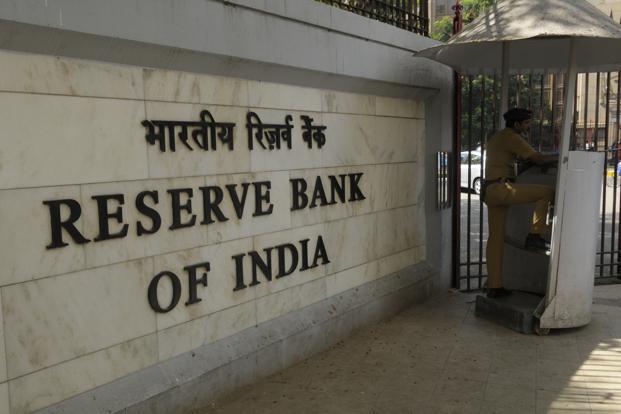If a non-banking financial company (NBFC) official receives a text message from a banker saying “all is well”, what does the banker actually mean? Is he making a vanilla statement saying everything is fine at his end? The company secretary of a large corporation tells me this means the loan for which the NBFC is lobbying with the bank as a broker is through. “All is well” indicates the banker’s confirmation of a deal. At the next stage, more text messages follow. They could be saying “Chinese cuisine”, “Punjabi food” or “Gujarati thali”.
What do these mean? While the first message refers to the scale (a buzzword in China, this means the quantum of the bribe that the banker needs to close the deal is hefty) the other two messages explain the mode of transaction. So, when an NBFC official sees his mobile phone screen flashing two words— “Punjabi food”—he knows the banker’s objects of desire are consumer durables, expensive watches or gold ornaments, while “Gujarati thali” refers to crisp currency notes. The banking and broking circle in Mumbai have been talking about these text messages, greedy bankers (not too many of them are around but, as you know, one rotten apple spoils the sack) and a few smart officials of the so-called boutique NBFCs who bribe the bankers to get loans for their corporate clients (here again, not all of them follow this route).
The provocation is the Central Bureau of Investigation busting a loan racket and arresting quite a few officials of banks and housing finance firms for giving loans to private builders after taking bribes from NBFCs who brokered such deals. In the eye of the storm is Money Matters Financial Services Ltd that recently raised `445 crore from institutional investors and has a phenomenal track record of raising debt for corporations.
My company secretary friend, who does not want to be identified (his firm has not raised any money using Money Matters as a broker), and a few bankers have told me the practice of giving bribes to get a loan sanctioned is rampant in the Indian financial sector, particularly among public sector banks. While the bankers say small loans of up to `5 crore that get sanctioned by relatively lower level officers are susceptible to such a practice, the company secretary says bribes are given even for large loans, particularly those given to builders. I am not privy to any specific case but, after talking to many in the industry, have got a sense of how such deals are struck.
There are many boutique NBFCs that provide debt advisory and syndication services and bright young B-school graduates work for them. They are creative in their approach to work. They call themselves investment bankers, arrangers, loan syndicators, financial intermediaries and so on, and hate to be dubbed brokers. In most cases, they hand-hold corporations from the first stage of arrangement of a loan, but there are instances also when they step in at the last moment on the insistence of bankers to rescue a deal.
The lenders are typically public sector banks. Since they are listed entities, business growth, valuations and price-earnings multiples are critical for them. They make conference calls with investors every quarter after announcing their earnings, and the pressure is always there to grow the asset book. Typically, when a loan proposal comes from a firm, banks take their own time to discuss it. An impatient firm, with a broker in toe, follows up with a junior officer who introduces him to his proximate boss. At this stage, the senior officer explains to his colleague how such loans can be sanctioned without violating any credit appraisal norms and asks for elementary stuff such as outstanding bank loan rating, promoter holding, names of existing bankers, etc. At the next stage, the firm returns with all relevant data to the senior officer’s cabin (as contact is already established). The loan proposal is now ready to travel to the meeting of the credit committee, but the senior officer suddenly digs holes in the proposal and only the financial intermediary can fill in those holes.
The banker sends the text messages to the intermediary (“all is well” and so on) who charges fee for bailing out the firm and spends part of the fee to arrange for the “Punjabi food” or “Gujarati thali” for the banker. The top management often does not take a critical look as it is chasing growth in assets. The professional charges towards arrangement and structuring fees usually range from 0.5% to 3% of the money raised, or even more, depending on the financial health of the firm. This makes the cost of money more expensive for firms, but those who do not have the bandwidth to negotiate with lenders have no other choice. They treat this as part of the financing cost and amortize it over loan tenure. Theoretically, all loans are required to be rated by credit rating agencies, but banks’ internal rating mechanism is also important while sanctioning a loan and fixing the price. Besides, the credit rating business itself is number-driven and the rating agencies, in their aggressiveness to grow market share and retain existing clients, are not always particularly careful about their job. I am told this practice is rampant in public sector banks, and private sector banks are more sophisticated and clinical in their approach while appraising a loan.
My personal take is that bribes can swing small loans for firms, but it’s extremely difficult to “manage” big loans as too many committees are involved in sanctioning such loans, and you can’t bribe all senior executives who are members of such committees. But “speed money” can sometimes change hands for faster appraisal of loan applications and sanctions. Also, when such exposures are taken through other debt instruments in the form of investments, decisions can be influenced. Finally, a bigger area of concern for an investigating agency could be settlement of bad loans.
Often such loans are settled at hefty discounts and the beneficiaries (corporations) wouldn’t mind bribing bankers to get it done. The housing finance scam is unlikely to have any systemic impact as a minuscule portion of banking assets is involved. Besides, bribes may have influenced the loan appraisal and sanction process but that doesn’t necessarily mean that the quality of these assets is suspect. But this may slow down the decision-making process in public sector banks that are anyway not known for speedy appraisals and loan disbursals. This is bad news for consumers.



